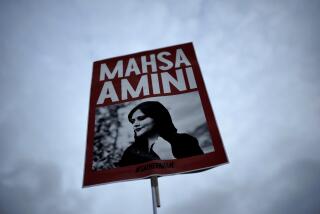A year later, Afghans reflect on a mob lynching of a woman falsely accused of burning Koran
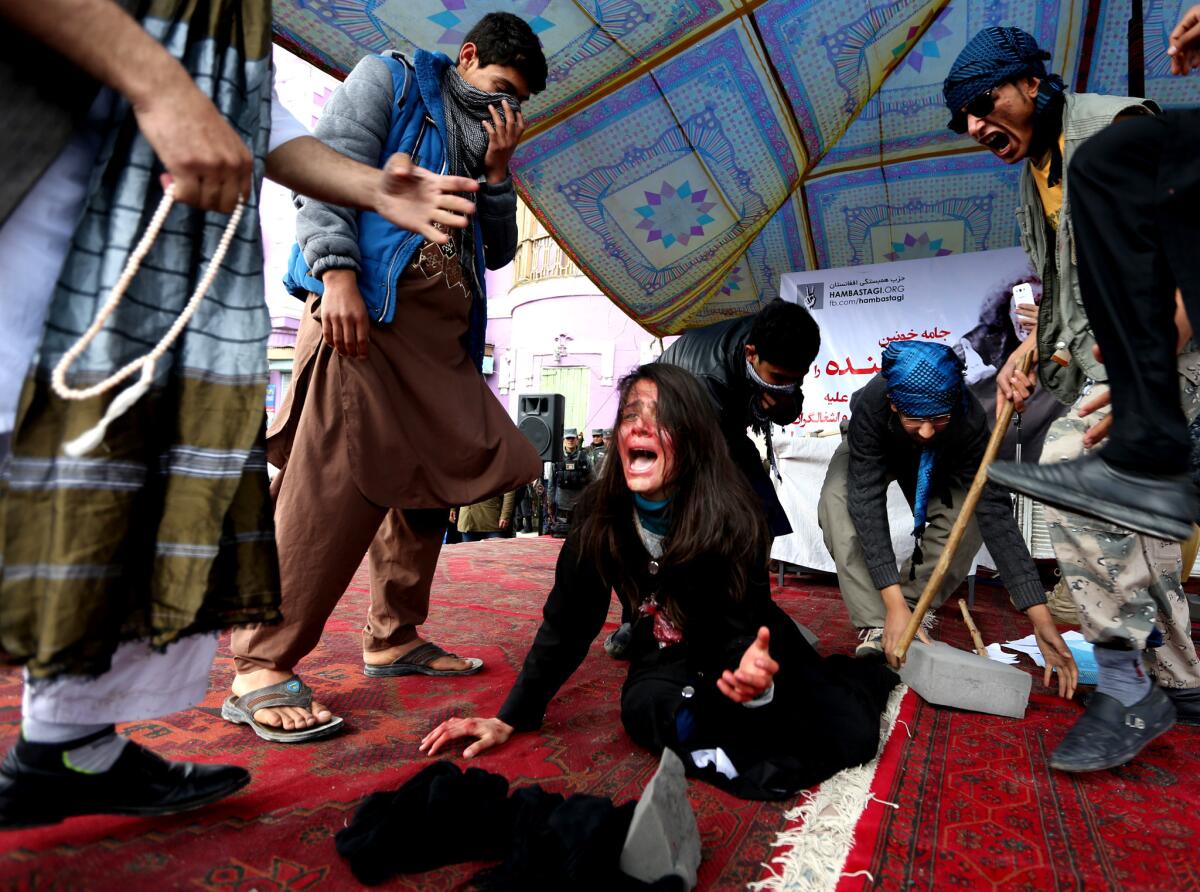
Afghan artists reenact the mob killing of Farkhunda Malikzada, 27, an Afghan woman who was beaten to death on March 19, 2015, after being falsely accused of burning a copy of the Koran in Kabul.
- Share via
Reporting from Kabul, Afghanistan — Last year, on the eve of the Persian New Year, amateur cellphone video captured by hundreds of mostly young men showed a crowd beating a young woman, her face covered in blood. She pleaded for her life and denied their accusation — that she had burned pages from the Koran.
After she was dead, they dragged her body from the back of a Toyota hatchback, dumped the corpse in a dry patch of the Kabul River and set it afire.
The gruesome video circulated online and soon was everywhere. The desperate cries of Farkhunda Malikzada, a 27-year-old student of Islamic studies, echoed in news broadcasts as Afghan commentators and politicians debated how such an act could have taken place in one of the Afghan capital’s most trafficked areas.
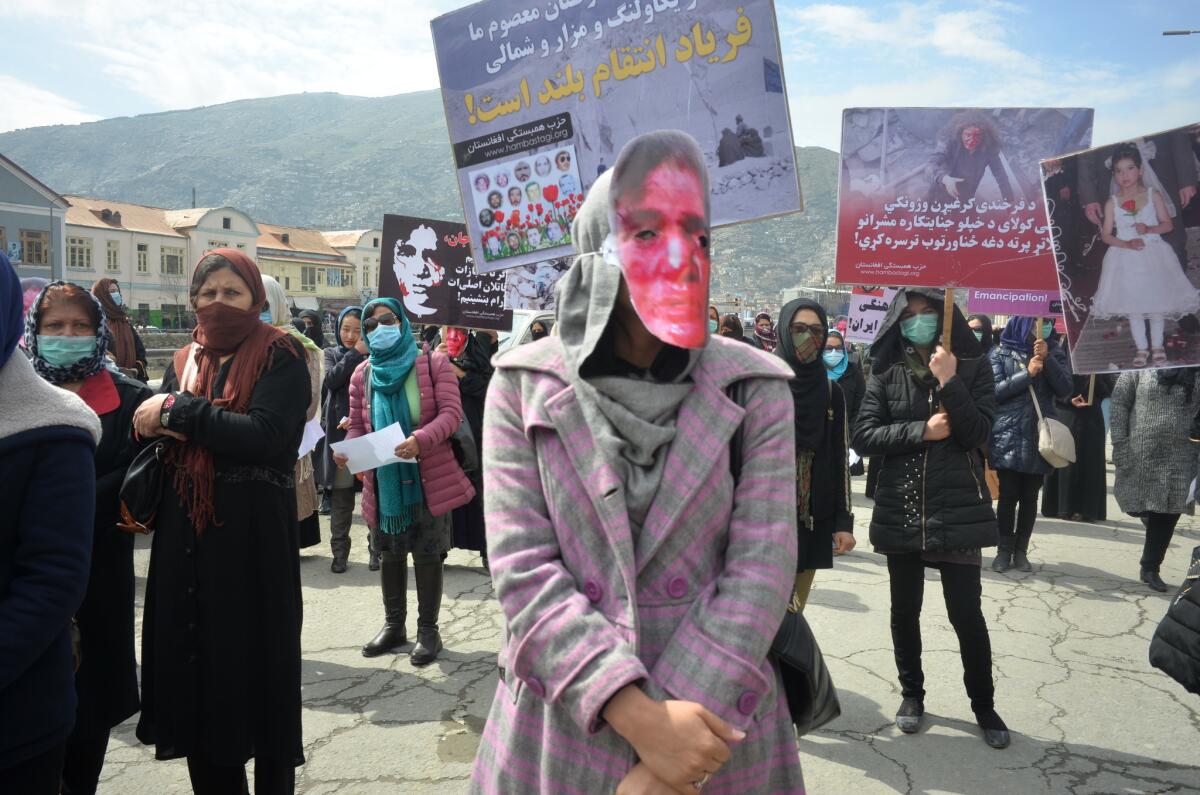
Afghans attending the dedication of a monument in Kabul honoring Farkhunda Malikzada wear masks depicting her bloody face.
Within 24 hours after the killing on March 19, 2015, security officials and the Afghan religious affairs ministry declared there was no evidence proving Malikzada had burned pages of the Koran as the crowd at the Shah-Do Shamshira shrine had claimed.
One year after the killing, many Afghans continue to wonder how a crowd of hundreds stood by and recorded Malikzada’s nearly two-hour-long ordeal without trying to intervene. In recent days Afghans staged events to remember the violence, including a group of artists who staged a re-creation of her death.
For Shakeela Ebrahimkhel, a television journalist who joined a group of women who carried Malikzada’s coffin to her final resting place, the killing highlighted that even in the nation’s urban centers, old attitudes pervade.
“These weren’t men who came down from the mountains — they were educated city-dwellers who rushed to beat and murder a woman based on hearsay,” Ebrahimkhel said.
These were not the Taliban who during their six-year rule in the 1990s executed people during soccer matches. In fact, the Taliban also denounced Malikzada’s killing. Nor were her attackers the former militants and warlords who were accused of beating and raping women during the civil war of the 1990s.
The men in the crowd came of age during the 14-year U.S.-led military intervention in Afghanistan.
Mujib, 18, who sells birdseed outside the shrine, was in disbelief that men of his own generation not only took part in Malikzada’s death, but also felt the need to document it on their phones.
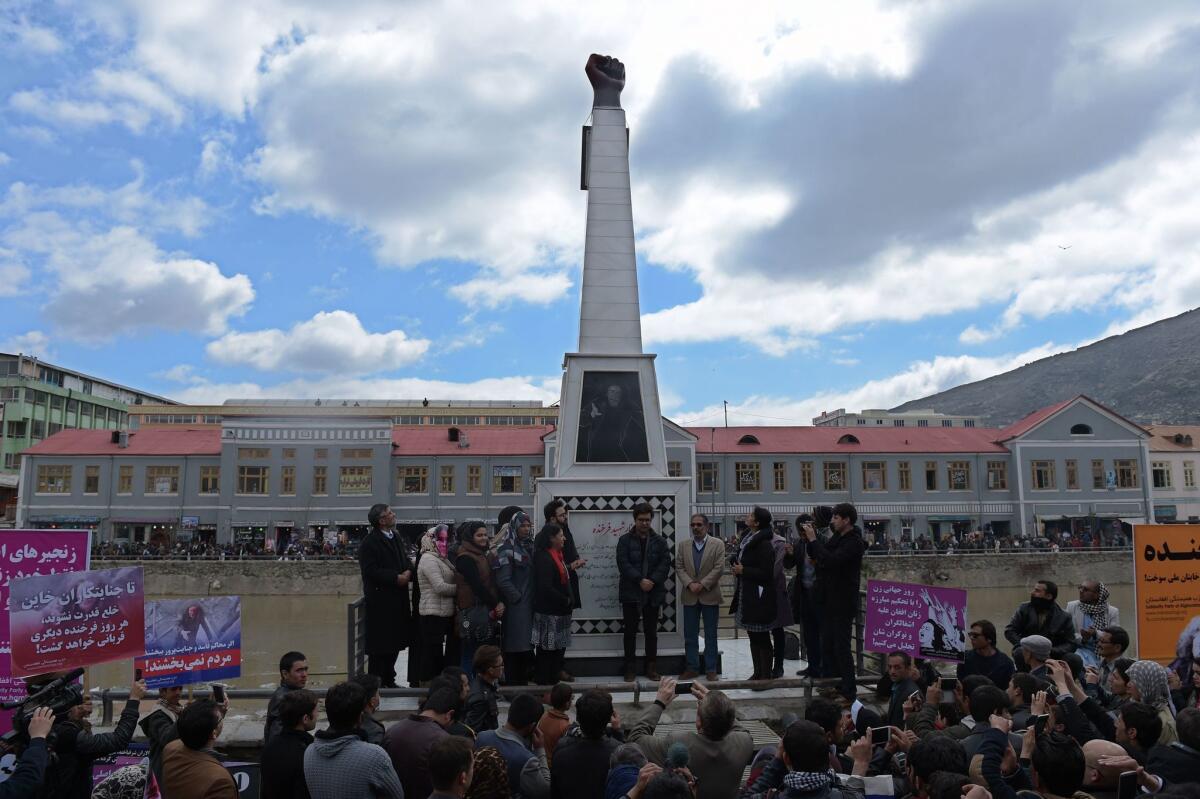
Afghan artists and activists gather at a memorial for Farkhunda Malikzada.
Within hours of Malikzada’s killing, a man in his 30s, identified as Sharaf Baghlani, boasted of his role in killing an “atheist woman” in a Facebook post that was later deleted.
Baghlani, who was originally sentenced to death along with four other defendants, had his sentence commuted to 20 years in prison.
The initial three-day trial last May was criticized on several fronts. A number of men who were clearly visible in the video never stood trial. There were also concerns about the collective sentences handed to entire groups of defendants who critics said were not afforded proper time to present their cases.
People were further angered by the fact that 11 police officers were given one-year sentences for dereliction of duty. Eight other officers were acquitted of charges of negligence.
Zarghuna Ahmadzai, a Kabul-based psychologist who works with battered and abused women, said a herd mentality led people to believe “they would be heroes” for documenting the incident.
The shrine and adjacent mosque have new caretakers now, since the former caretaker was among those imprisoned for inciting the mob. They have banned loitering and the use of cellphones at both locations.
“We tell everyone to pray and go, there is no reason to meander at a shrine,” said Hajji Naeem, the new caretaker of the shrine.
Mohammad Ali, a member of a council formed to oversee the shrine since the killing, said some have complained about the mobile phone ban but they stand by the policy.
“We have become a nation of viewers, not doers,” Ali said. “Now, if someone falls we don’t reach out a hand to help them up, we grab for our phones.”
Anisa Shahid, a television journalist, said Malikzada’s gender was part of the reason she was attacked.
“In this society, men still harbor a deeply rooted resentment towards women, especially those that are outside of the house,” Shahid said.
To some, the brutality against Malikazda was at least in some parts a reaction to a series of societal frustrations among young men — unemployment, a stagnated economy and rising insecurity — that have led to the feeling that they had little control over their own lives at a time when so much Western focus was put on empowerment of women.
“There are some men who still can’t stand to see women thriving,” Ebrahimkhel said.
Though the court case was seen as a sham and women continue to face abuse and harassment, Ebrahimkhel said the bold step taken by her and nine other women to break with tradition and carry Malikzada’s coffin themselves provided some level of closure.
Ebrahimkhel recalls all of the women — some in high heels, and some barefoot — trudging over more than 300 feet of rocks, gravel and sticks to reach the grave.
“We knew we had to go the full distance, so we just kept walking and walking no matter the conditions,” she said.
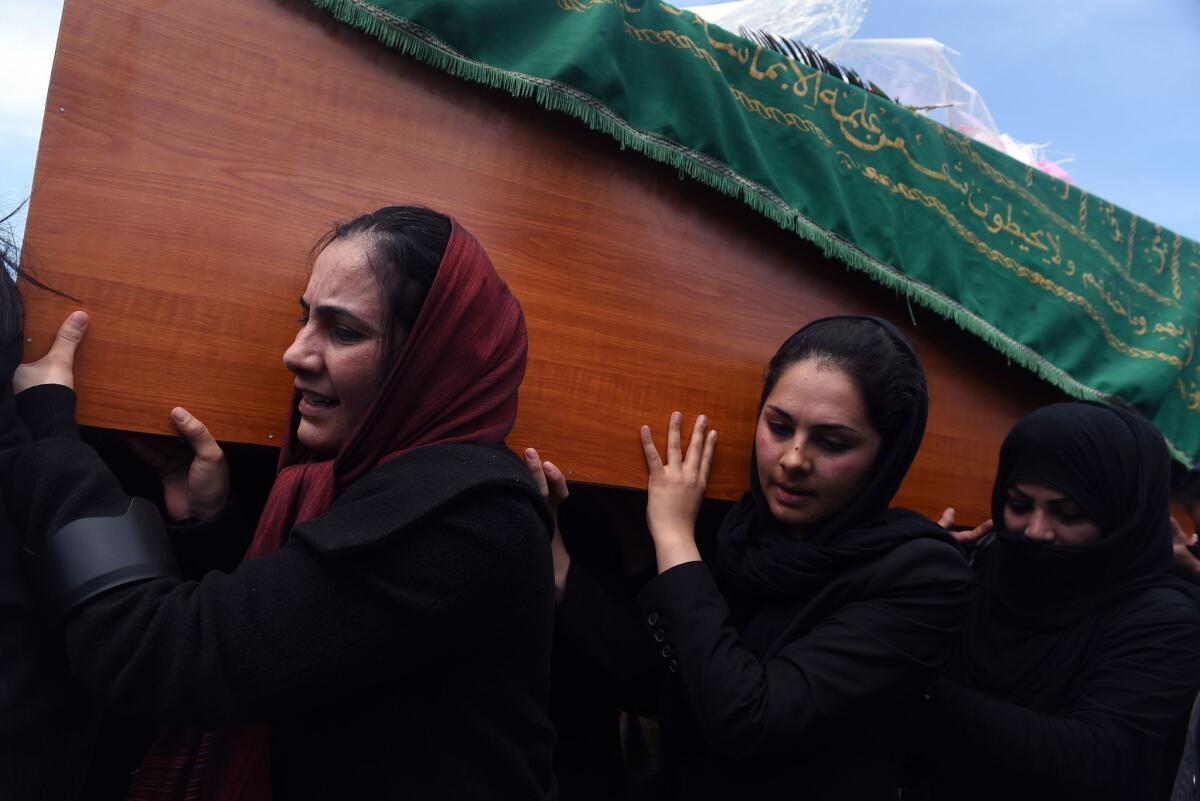
Women carry the coffin of Farkhunda Malikzada to her burial place after her brutal killing in March 2015.
With a group of men forming a human chain around them, the women lowered Malkizada’s burned body into the ground. Young men and women took smartphone pictures of the ceremony and posted them on social media.
“In our own way we thought this would help restore this woman’s honor and bring some justice to the horrors that befallen her,” Ebrahimkhel said.
Earlier, when the coffin was taken from the house of Malikzada’s family for the funeral, young men cried out, “Allahu akbar!” — God is great! — the same words her attackers used.
Latifi is a special correspondent.
ALSO
Lufthansa jet and drone nearly collide near LAX
Jury awards Hulk Hogan $115 million in sex, celebrity and privacy case
Dramatic images show El Niño beginning to rescue California from its drought
More to Read
Sign up for Essential California
The most important California stories and recommendations in your inbox every morning.
You may occasionally receive promotional content from the Los Angeles Times.


